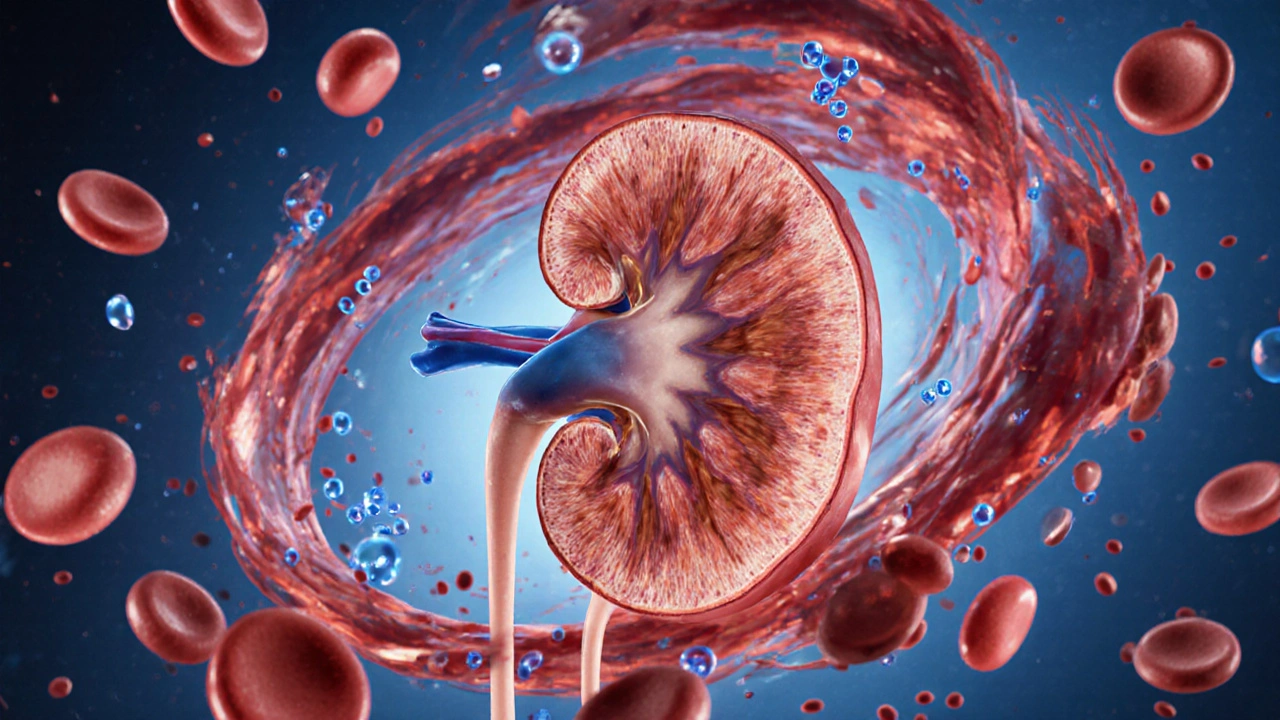Chronic Kidney Disease – What You Need to Know
When dealing with Chronic Kidney Disease, a long‑term condition where the kidneys lose the ability to filter blood effectively. Also known as CKD, it affects millions and often goes unnoticed until complications arise. The disease progresses through stages measured by eGFR, and each drop in kidney function raises the risk of cardiovascular events, anemia, and bone disorders. Early detection hinges on routine blood tests that check creatinine and urine protein. Understanding how CKD develops helps you catch warning signs before irreversible damage sets in.
Key Factors Influencing Chronic Kidney Disease
One of the biggest drivers is diabetes mellitus, high blood sugar that damages tiny blood vessels in the kidneys. When glucose levels stay elevated, filtration units called nephrons scar over time, pushing eGFR lower. Chronic kidney disease also accelerates under the pressure of hypertension, chronic high blood pressure that strains the renal arteries. The combination of diabetes and hypertension creates a perfect storm: excess sugar weakens filtration, while high pressure forces more fluid through damaged glomeruli, speeding up scarring. Another overlooked contributor is kidney stones, hard mineral deposits that can block urine flow and cause repeated infections. Obstructive episodes raise intrarenal pressure, leading to tissue injury that compounds CKD progression. Lifestyle habits—excess sodium, low water intake, and high animal protein—can worsen all three factors. Managing blood sugar, keeping blood pressure below target, and preventing stone formation are interlinked steps that together slow the decline of renal function.
Beyond these core risks, patients often need to monitor vitamin D levels, because deficiency can spark secondary hyperparathyroidism and bone loss. Dietary tweaks like limiting phosphorus, choosing plant‑based proteins, and staying hydrated support kidney health. Medications such as SGLT2 inhibitors (e.g., dapagliflozin) have shown kidney‑protective effects, while certain antihypertensives like ACE inhibitors directly reduce glomerular pressure. Regular eGFR checks, urine albumin tests, and blood pressure logs give a clear picture of disease trajectory. In the articles below you’ll find side‑by‑side comparisons of drugs that matter for CKD, practical guides on diet tweaks, and tips for safe online pharmacy purchases—everything you need to take charge of your kidneys today.

Anemia and Kidney Health: How Nutritional Deficiencies Affect Renal Function
Learn how iron, B12, and folate deficiencies trigger anemia, worsen kidney function, and what diet and supplements can help protect renal health.
Read More